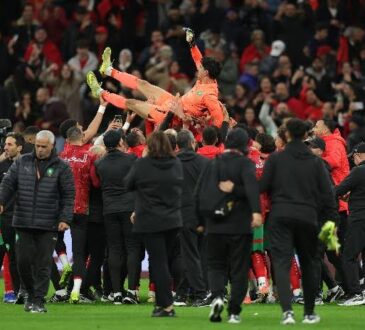
Justice Haruna Tsammani is a highly regarded Nigerian jurist who has made a significant impact in the legal profession in the country. With over two decades of experience in the field, he is widely regarded as one of the most respected judges in Nigeria. This article provides an in-depth look at the life and career of Justice Haruna Tsammani, including his early life, education, career in law, seniority in the Court of Appeal, personal life, and humanitarian efforts.
Early Life and Education
Justice Tsammani was born on November 23, 1959, in the Tafawa Balewa Local Government Area of Bauchi State, Nigeria. He had a strong desire to pursue a career in law from a young age and worked hard to make his dream a reality. He received his early education at the Government Primary School in Tafawa Balewa and later attended the Government Secondary School in Jama’are where he obtained his West African School Certificate. In 1982, he graduated with an LL.B degree from the Ahmadu Bello University in Zaria and was subsequently called to the Nigerian Bar in 1983 after attending the Nigerian Law School in Lagos.
Career in Law Justice
Tsammani’s legal career began in 1984 when he joined the law firm of Sodipo & Co. as an associate. He worked there for a few years before being appointed as a Magistrate in Bauchi State. Over time, he rose through the ranks and became a Chief Magistrate, and later a Chief Registrar of the High Court of Bauchi State. In 1998, he was appointed as a Judge of the High Court of Bauchi State, a position he held until his elevation to the Court of Appeal in 2010.
As a Judge, Justice Tsammani has been involved in several high-profile cases in Nigeria. He presided over the VAT case between the Rivers State Government and the Federal Government, and was the chairman of the three-man panel that granted motions to serve petitions by substituted means in the cases of Obi and Atiku. He was also the judge who prepared the judgment in Ajimobi v Balogun, affirming the election of Kola Balogun as Senator representing the Oyo South Senatorial District in 2019.
Justice Tsammani has received numerous appointments to committees and panels in recognition of his contributions to the legal profession. He was a member of the National Judicial Council’s Committee on the Review of the Code of Conduct for Judicial Officers, and also served on the Presidential Committee on Prison Decongestion.
Seniority in the Court of Appeal Justice
Tsammani’s elevation to the Court of Appeal in 2010 was a major milestone in his legal career. He is currently ranked 12th on the Seniority list of the Court of Appeal, which is an important ranking system used in the Nigerian judiciary to determine the order of seniority of judges in the appellate courts. This ranking is a testament to his experience and contributions to the judiciary in Nigeria.
Personal Life
Aside from his professional life, Justice Tsammani is a family man who is married with children. He is also a devout Muslim and is actively involved in community development projects in his hometown of Tafawa Balewa.
Humanitarian Efforts
Justice Tsammani is deeply committed to making a positive impact on the community in Tafawa Balewa. He has been actively involved in community development projects in the area and has used his position to support various initiatives aimed at improving the lives of the people. One of the notable projects he has supported is the construction of a primary healthcare center in Tafawa Balewa, which provides basic medical services to the people in the community who may not have the means to travel to urban areas for medical treatment. The healthcare center is equipped with modern medical equipment and staffed with trained healthcare professionals.
Justice Tsammani has also been a strong advocate for education in the community and has supported the establishment of several schools in the area. He has provided funding for the construction of classrooms, the provision of educational materials, and the recruitment of teachers. Through his efforts, many children in Tafawa Balewa have been able to access quality education, which has improved their prospects for the future.
In addition to healthcare and education, Justice Tsammani has also supported various initiatives aimed at improving infrastructure and social amenities in Tafawa Balewa. He has provided financial support for the construction of roads, bridges, and other infrastructure projects. He has also supported the development of sports facilities, which has helped to promote sports and physical activity in the community.
Top 10 Facts From Justice Haruna Tsamman Biography
- Justice Haruna Tsammani is a highly regarded Nigerian jurist with over two decades of experience in the field.
- He was born on November 23, 1959, in the Tafawa Balewa Local Government Area of Bauchi State, Nigeria.
- He graduated with an LL.B degree from the Ahmadu Bello University in Zaria in 1982 and was called to the Nigerian Bar in 1983 after attending the Nigerian Law School in Lagos.
- Justice Tsammani’s legal career started in 1984 when he joined the law firm of Sodipo & Co. as an associate.
- He has presided over several high-profile cases in Nigeria, including the VAT case between the Rivers State Government and the Federal Government.
- He was elevated to the Court of Appeal in 2010 and is currently ranked 12th on the Seniority list of the Court of Appeal.
- Justice Tsammani is a family man who is married with children and is actively involved in community development projects in his hometown of Tafawa Balewa.
- He has supported the construction of a primary healthcare center in Tafawa Balewa and has been involved in the promotion of education in the community.
- He has provided financial support for the construction of roads, bridges, and other infrastructure projects in Tafawa Balewa.
- Justice Tsammani’s life and career are a testament to the value of hard work, dedication, and excellence and he continues to make significant contributions to the development of the Nigerian legal system.



